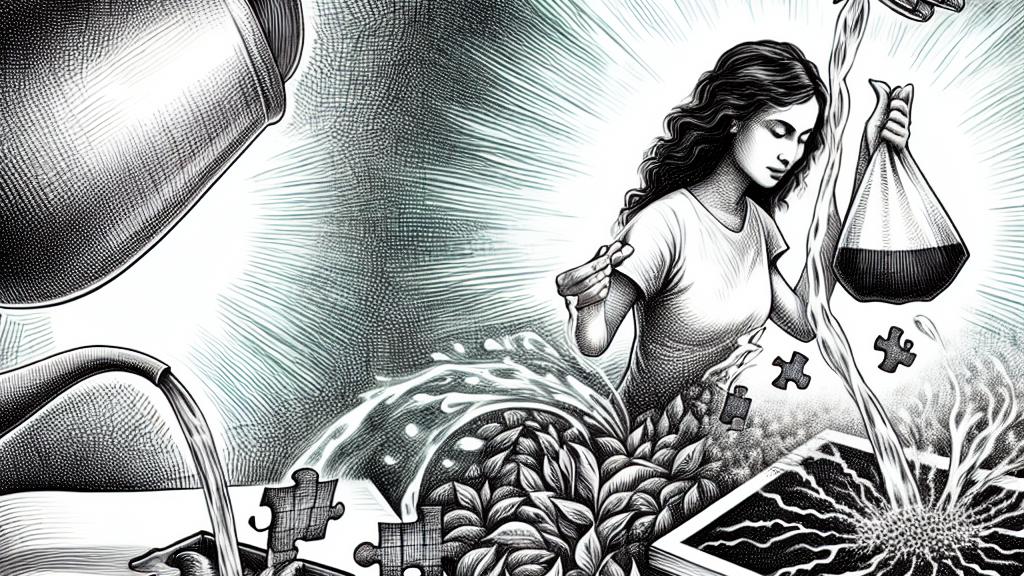Understanding How Our Brains Solve Word Puzzles
Overview
- Discover the exciting phenomenon of sudden insights in puzzle-solving.
- Explore the innovative model linking puzzle-solving to percolation processes.
- Learn how partial knowledge paves the path to complete solutions.

The Percolation Model for Word Puzzles
In an intriguing revelation from Germany, physicist Alexander Hartmann has introduced a groundbreaking model that captures how we conquer word puzzles, ranging from crosswords to word searches. Picture this scenario: you’re hunched over a challenging puzzle, feeling as if you're stranded in a mental desert. Then out of nowhere, it happens—an answer clicks into place! This moment of clarity can be compared to water finally flowing freely through a teabag, after being patiently confined. Hartmann artistically parallels this burst of insight with the percolation process, making us rethink our puzzling strategies. Like the ritual of making a perfect cup of coffee, where every detail matters, the joy of solving puzzles unfolds with time and careful consideration. With Hartmann’s model, we are reminded that persistence can often lead to those enlightening breakthroughs we crave.
The Tipping Point and Knowledge Gain
Hartmann's exploration delves into the exhilarating experience of achieving those 'Aha!' moments while wrestling with a puzzle. Consider starting with a chaotic jumble of letters and clues, where everything feels disjointed and meaningless. Yet, as you place one correct letter, perhaps an 'R' in a crossword, suddenly the entire landscape transforms. It’s like turning on a light switch in a dark room. Each insight births new connections, leading to more discoveries—a far cry from the initial confusion. This stunning metamorphosis parallels how ice forms from water; reaching a critical point is essential. Such a phase transition showcases our brain's incredible ability to exploit existing knowledge to forge new pathways of understanding. Each small victory lays the groundwork for a cascade of solutions, illuminating our remarkable capacity for problem-solving.
Real-World Insights from Puzzle Solving
What makes Hartmann’s findings particularly captivating is their resonance with broader themes in physics and cognitive psychology. He situates his model within percolation theory, a fascinating study of how elements connect within a network. Think of word puzzles as intricate webs: as you fill in each blank, you strengthen the entire network of your vocabulary and knowledge. This insightful perspective emphasizes that solving puzzles is not merely about reaching the correct answers but also about deepening our comprehension and enhancing our ability to connect disparate ideas. Hartmann’s illuminating insights not only transform our approach to puzzles but also enrich our understanding of how incremental knowledge leads to greater insights in our daily lives. Ultimately, they reinforce our inherent ability to find structure and meaning within the chaos—a remarkable testament to the power of the human mind.

Loading...